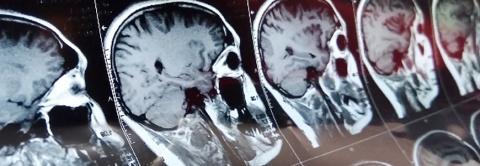
Microvascular surgeon discusses her approach to intense procedure
Depending on the type and location of a tumor in the head or neck, free flap reconstructive surgery can often be curative either on its own or in combination with chemotherapy and/or radiation therapy. However, educating patients on the complexity of this time-sensitive, microvascular reconstructive technique can be difficult, as complications from free flap tissue transfer can lead to loss or death of the flap.
Trinitia Y. Cannon, MD, a Duke otolaryngologist, head and neck surgeon, and microvascular surgeon who leads a new multidisciplinary clinic at Duke Raleigh Hospital, says the success of this technical procedure depends on the expertise of the surgeon and the microvascular perioperative care team.
“My team and I help our patients understand that these complex surgeries will cause a change in their quality of life, such as difficulty chewing, swallowing, talking and breathing, that they have to be willing to accept in order to fight the cancer,” says Cannon, “but reconstructive surgery using vascularized free flaps helps to mitigate some of those challenges.”
"Talking To Patients About Free Flap Surgery"
Microvascular surgeon discusses her approach to intense procedure
January 12, 2021